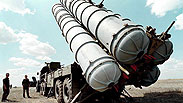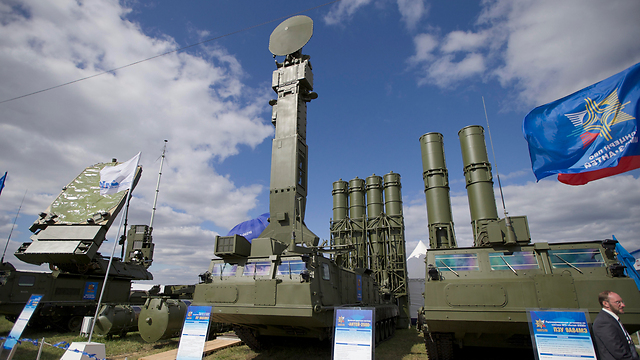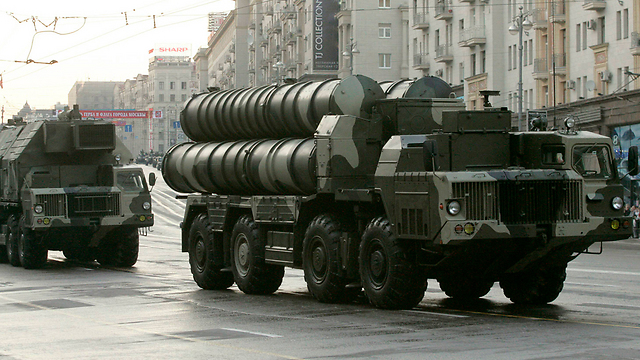

Israel can deal with Russian supply of S-300 missiles to Syria
Analysis: Moscow’s announcement that it will consider selling Assad long range surface-to-air missile systems should be taken seriously, but America's and Israel's knowledge of the system’s features has made it possible for Western countries to develop ways of disrupting and neutralizing its abilities.
It should be taken seriously not only because the Russians want a painful retaliation against the American, Western and Israeli forces in the region, but primarily because the Russians have a habit of using every situation to increase their foreign currency incomes at the expense of their allies’ distress.
The S-300 system is more efficient and advanced than any other antiaircraft system the Syrians have today. It can intercept not only aircraft but also ballistic missiles and possibly even cruise missiles at ranges higher than 150 kilometers and at a high altitude.
Syria has been trying to buy these missiles from Russia for a long time, and the Iranians have been willing to fund the deal, but Russia has avoided selling the missiles to Syria due to Israeli and American pressure.
Moreover, up until three years ago Russia avoided delivering the S-300 system to Iran, although Tehran had signed an agreement to purchase the missiles more than 10 years ago. The sale was executed only after the nuclear deal was signed, but over the years the system became obsolete. It has been sold to more than 20 countries across the world, and its technological components and the frequencies in which it operates are well-known in the world.
Furthermore, it’s a large system which cannot be easily hidden or moved. So although the Russians have upgraded the system several times in recent years, it is no longer seen as a threat that cannot be overcome, as it was more than 10 years ago.
The Americans’ intimate knowledge of the system’s features, and likely the Israelis’ knowledge too, has made it possible for Western countries to develop ways of disrupting and neutralizing the system’s abilities.
Nevertheless, the S-300 system should be treated cautiously if it does reach Syria, as it has the potential of threatening civil and military aviation in the State of Israel and in Jordan. The Syrians’ possession of this system would require caution procedures and preventive measures which we have hardly had to take so far.
The Syrians will likely ask the Iranians to fund the purchase of the S-300 system. Both Greece and Cyprus own the older model of this system. It’s an expensive system, and the Russians will likely make a significant profit from selling it to the Syrians. But the training of Syrian operators will take a long time, and the Russians may discover that they made a mistake—if, for example, the Syrians use this system against Israel Air Force planes and if Israel destroys the S-300 in retaliation. That would spoil the Russian arms industry’s reputation, which isn’t something the Russians want. Nor do they want to operate this system themselves for the Syrians in subcontracting deal, which would be very risky too.
The bottom line is that the Russians will likely try to sell the S-300 to Syria, but they won’t rush into it and they won’t sell them the newest model. That way, if the system is damaged while the Syrians are using it, they will be able to say that they aren’t concerned as it isn’t the newest model.
In any event, as Syrian President Bashar Assad has no money, the Russians and Iranians will have to share the financial burden of purchasing the system, which costs hundreds of millions of dollars. Israel will have to prepare and ensure that it has the means to neutralize the threat.

















